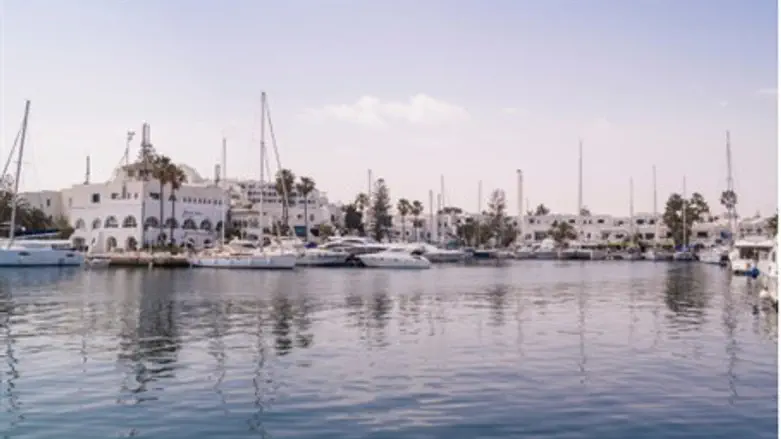
The U.S.-based operator of a cruise ship whose Israeli passengers were prevented from entering Tunisia, announced on Tuesday that it would no longer call at Tunisian ports, AFP reports.
The Miami-based Norwegian Cruise Line said Monday that a "small number" of Israeli passengers were not allowed to disembark in Tunis "because of a last-minute decision made by the Tunisian government."
"In response to this discriminatory act, Norwegian Cruise Line announced today that it has cancelled all remaining calls to Tunisia and will not return," the company said.
"We want to send a strong message to Tunisia and ports around the world that we will not tolerate such random acts of discrimination against our guests," said CEO Kevin Sheehan, according to AFP.
"We are outraged by this act and the fact that we were not notified in advance of this practice," he added.
A official at Tunisia's tourism ministry said the visitors were prevented from disembarking because they did not have visas.
The interior ministry said simply that 14 tourists were not allowed into Tunisia because they "did not meet the legal conditions for entering our country."
It did not specify their nationalities or elaborate further.
The issue of relations with Israel is a taboo subject in Tunisia, as it is in other Arab countries. In January, the country’s Tourism Minister Amel Karboul was forced to resign hours after being sworn in, over a trip she had made to Israel for professional reasons.
Tunisia hosted the Palestine Liberation Organization (PLO) after its 1982 expulsion from Lebanon and until after the signing of the Oslo Accords.
In 1996, Tunisia and Israel opened interest sections in each other's country, but Tunis froze relations in 2000 in protest at Israel's response to the Second Intifada, also known as the Oslo War.
After the ouster of former president Zine El Abidine Ben Ali, the Islamist Ennahada party, which won the country's first free and competitive elections, rejected outright any normalization of diplomatic ties with Israel.
Tunisia relies on tourism for almost seven percent of its gross domestic product and has seen a significant drop in tourists since the 2011 revolution which started the Arab Spring protests.
